Tenday Notes: 1-10 Feb 2020

Every ten days I share a quick digest of what I've been working on. Here's the latest. You can find more in the series here.
The last ten days have mostly been about finishing off my current list of paid work, and digging into the start of some of the personal projects I plan to launch this year.
I'm most excited about having completed a bunch of beautiful charts showing climate change solutions for Drawdown, It'll be great to get them out into the world in due course. As soon as I can share them publicly, I will do - and hopefully a bit of the process behind them too.
I've also been putting together a bunch of charts for FutureEarth's latest report - Our Future on Earth. The report connects recent news events with the latest environmental science research, and my job was to replicate charts from some of that research in a vector format so they could be added to the report. Some were challenging, others less so, but I got more fluent with Figma in the process, and also got to dust off my old QGIS skills. Hoping to do some more of that in the near future.
The latest entry in my Taking Inventory series on Minecraft.net is about axes (the chopping kind, not the chart kind). Did you know they're probably the longest-used tool in human history? We've been using them for more than a million years - since before humans were humans. Read more on Minecraft.net, but be warned - the article ends with a rather excruciating pun.
I did some editorial coaching for the writer of one of the better-known data visualization blogs. They wanted to know how they could sharpen their writing, while retaining personality and voice. I wasn't sure in advance how useful I would be (thanks, impostor syndrome), but in the end I was actually really pleased with the advice I was able to give and felt like I helped a lot. It made me wonder if I should offer a similar service more widely. If that sounds like something you'd like me to help you with then you can drop me a line.
A short piece by me for The Wired World in 2020 has just made it onto the web. It's about Europe falling in love with train travel again. It was written about six months ago, so it's not totally up-to-date, but it's the first thing I've done for Wired in a couple of years so it's nice to be on their pages again. Read the whole thing here.
The folks at Gramener's Storylabs have built a "happy little tool" built on JOY.JS that allows you to create your own system for encoding data in glyphs. It's called Joyful Data. I had a play with it, using some of my Space Dogs data, in this blog post.
I spent quite a while fiddling with the design of a holding page for a soon-to-launch project. If you're reading this, you get a sneak preview. I was struggling to get it to look nice on mobile, until I reached out for help from my friend Eden, who told me that my media queries need to go at the bottom of style.css, otherwise they'll get overwritten by whatever I write below. Mind blown. Guess that's what you get for never actually learning CSS in a structured way. Thanks Eden!
I finally finished off my poster of the populations of Swedish cities. In the end, I couldn't get my original tool - Flourish - to export an SVG, so instead I resorted to QGIS. I've now got a lovely vector-based version, ready for the next step - printing. I've struggled to find a good recommendation for a printer here in Sweden, because I'm looking for slightly more than a traditional commercial relationship where I ask for something and they do it. Instead, I want a printer that I can collaborate with on producing beautiful work, who'll tell me the best practices to follow and when something just looks bad. I'll keep looking.
Otherwise, most of my work over the past ten days has been around setting up systems and processes. I've rebooted by old RSS feed reading system, Feedly, and added a few new blogs that I want to follow. I installed a Twitter client called Twizzle that lets me send a message or send a DM without getting caught in the tiny loops of the timeline and replies window. I've also been considering the beginnings of a larger research project that I might look at this year. More on that to come.
Finally, I'll leave you with this 2017 interview with Craig Mod on the Hurry Slowly podcast. It covers recovery and maintainence of attention and focus, the benefits of offline mapping of ideas, the value of short- and longer-term non-connectivity time, and why Facebook is like the Pyramids. Go listen.

